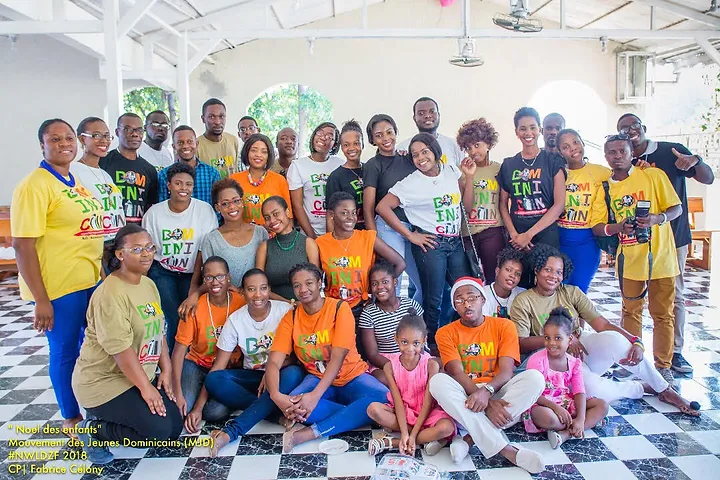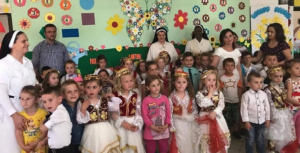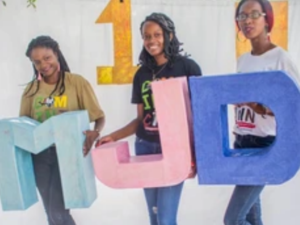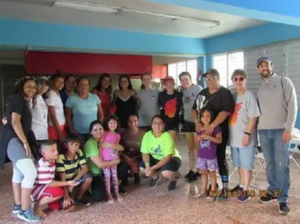Due to the difficulty of addressing the fact as a general matter, in which the different cultural and social aspects play a major role, it is necessary to define how we are approaching this issue from the point of view of current European development, although to be based on generalities certainly valid for all countries, so we’re going to address from the perspective of psychology, the life of the youth of today.
What is being young?
If we were to give a general definition of youth we could stay with the following:
Youth is the period of life that usually takes place between childhood and adulthood. According to the provisions of the agencies of the United Nations, determining exactly the span of years that occurs youth, we could say that it occurs between 15 and 25 years, thus being one of the most important stages of life to intrinsically define the person, their interests, their projects and their relationship to the world around her.
Youth is not only a biological, but psychological, social and cultural process, ie, it is largely a social construction; depending on the historical period and society in which we find young people of different ages will be considered. It is therefore necessary to place the youth in the society in which they live.
There is some consensus to think youth begins with puberty and, therefore, biology is who is determined, the fact remains that there is no biological event that marks its end, which is marked by society as which is considered as the economic independence and the creation of a new family unit arrives (in our day, and talking about young, keep in mind the diversity and plurality).
Currently, we believe young people between 15 and 30 years. The end of youth has been dragging lately, from age 25 to 30, reaching 35 years if we focus on socio-economic aspects of juvenile status, including access to housing.
Thus we see the dynamism of youth and how the concept evolves and changes with time and society when making a hairpin ages who are valid to a society and a particular time.
Youth living in society
I would like to introduce this point through a small poem by Mario Benedetti, which presents some challenges of our time as young people have to face:
What is left to prove to young
in this world of patience and disgust?
Only graffiti?? Rock?? Skepticism??
also left with no say amen
not let them kill love
restore speech and utopia
be young without haste and memory
placed in a story that is yours
not become prematurely old
What is left to prove to young
in this world of routine and ruin?
Cocaine? Beer? Hooligans??
is to breathe / open eyes
discover the roots of horror
invent peace even if its the hard way
terms with the nature
and rain and lightning
and the feeling and death
that crazy of binding and loosing
What is left to prove to young
in this world of consumption and smoke?
Vertigo?? Assaults?? Nightclubs??
also left with arguing with God
whether or not there exists
tender helping hands
open doors in own heart and your neighbor
above all they have left to do future
despite the ruins of past
scholars and rogues of this.
Undoubtedly, with this text, you will not perceive a certain restlessness, and it certainly is in this period of youth, where our choices, our concerns and our interests will be marked in future choices in life.
But in a society like ours, in which the importance of having before that of being, where the immediacy (we have the opportunity to access what we want on many occasions with a simple click) is more important than work and meet strive for a goal, and in which new media “communication” are moving away (just need to see some friends in youth meetings which, although they are all together around a table, are pending what happens in social networks, or whatsapp without giving importance and care to people who are at that moment before).
And what are the values that supports the actions of a society? Certainly, as I mentioned briefly before, in having. You need to possess even the people who are important in our lives, and if this is really serious, because to “objectify” people (treat people like an object you were) rendered any action that entitles one to get someone else to do what we want them to do. There is no ethical problem in using the people around us. This is particularly severe in people you have more confidence, ie families.
What is certain is that in today’s society increasingly has less tolerance for that which we do not want, and that translated to personal relationships promotes different types of rupture (as we see in a dysfunctional families, in relationships ending friendship by things that really do not matter, love relationships that break through misunderstandings and not gamble or fight to keep love and care that … ), and it is in this context that the words fidelity and loyalty lose their value. Anything that bothers us legitimizes a break, and we are not faithful to that loyalty than any precise human relationship.
In our society it is also clear, as Benedetti says, a loss of illusion arises. Individualism, the loss of trust in others, the paradigm of competition versus collaboration have contributed to a more limited view of “social life” that characterizes us as a human species.
Furthermore, we find people who increasingly have more training, technically are far better positioned to succeed (meaning I succeed as getting a good job in order to get a standard of living that allows comfort and why not say it, some luxuries), and deal with the situation we find ourselves in a deep crisis in which these young people are without access to the positions that their preparation would allow them because of their lack of experience and who are overqualified for some jobs with which could have a beginning of adult life. No doubt this situation does arise if in fact the youth is actually worth training (thus emerging generation called NEET, neither study nor work). Call frustration appears.
As we see this situation creates what is known as “the snake that bites its tail”, ie, it is not possible motivation for these young people are formed, while the inability to make them aware that there is, to get to meet objectives, we must fight for them, because let’s face have a generation ahead giving you all your help, such as the generation of our parents, removes many concerns.
In this environment of hopelessness all necessary escape. In many cases through substances such as alcohol (statistics in Spain show increasingly lower age of onset of smoking and greater frequency of use), and occasionally by other drugs such as cannabis or cocaine .
Seeing all this context, we see that being young is not easy, the economic crisis and especially the crisis of values makes it evolve and grow to become more complicated, especially when that growth rely on principles that are not solid.
Of course not everything in our society is negative. Having information constantly on hand makes the youth of today is perfectly informed (at least those things that interest you).
Furthermore access to culture is much easier than the generations that preceded us (just need to make a comparison with the number of people with university degrees at the moment and that was about ten years ago).
The new media, as seen above, make relationships depersonalize youth, but also thanks to these new media have come to see as the movements initiated in Madrid in May 2011 and supported by multiple countries the thousands of young people and through social networks were cited for changing a society and a system that does not work and do it peacefully and through dialogue
All this makes us to be known as the “Generation Y” or “Millenials” (well known to born between the decades of the 80’s, 90’s, until the early 2000s), the main feature (as I mentioned above) they are characterized by widespread use of social networks and their ‘familiarity’ with innate communication, media and digital technology.
But it definitely makes a difference to the generation that precedes us is we’re more focused on getting the most out of this, to live what we love and seek happiness in everything we do. We have confidence in ourselves, we are connected to the world and open to change, since we know that evolution is the key to survival. We are driven by passion.
Generation Y include our pluralism, pragmatism, lack of utopia and nonlinear thinking.
We are a generation characterized with a clear multitasking behavior, that is, able (or need) to do several things at once. Determined by connectivity and full access to information, what most defines them is the taste for collaborative tasks and everything related to crowdsourcing.
Besides all the above, we as Millennials are characterized for:
● Being Critical and participatory: Millennials grew up with the Internet and the evolution of web 2.0. We have a critical capacity: we do not believe things easily but we investigate and contrast the information to create our own opinion. We prefer tools that encourage sharing, such as communities, forums or social networks, as we consider important to give our opinion.
● The vision of carpe diem: we take advantage of this, live in the moment and look for happiness in all that we do. Passion governs most of our decisions and we are open to change with a great adaptability.
● Control over our work and personal life: When a millennial feel that their work is no longer a challenge, lets find another opportunity that allows him to further develop his talent. (This is a challenge for companies as if they retain their younger employees, they need to generate a dynamic environment that encourages personal and professional growth).
● Passion for Technology: Internet and Generation Y were born almost simultaneously. For Millennials, technology is like television for the generation of our parents or radio to the generation of our grandparents. In this regard, we emphasize the role of social networks that are essential to the development of our social life component.
Living Faith in youth
So far we have seen a definition of what today is considered youth, and the challenges that we as young people are facing today. But, How do we face the challenges that society imposes on us as young Catholics?
Young believers are not outside society, and face the same challenges and difficulties that any young at this time, but certainly the fact of living the faith and be consistent with it, the challenges are even greater.
For if we live in a society where it is important to have, how can you deal with that ideology when you look around and see so much poverty? How to focus on having the latest cellphone model when you have brothers who are dying (literally, unfortunately) hunger? How can we close our eyes to immigration and the treatment of immigrants in the host countries?. Certainly the focus changes, there is a more global, more open to others, more oriented to the needs of those around us, more social, and finally out to more community vision.
No doubt the fact of participating in faith communities, such as those created around the Dominican Youth Movement, the youth we find surprise and misunderstanding, do not understand the need to gather around God, to speak of God and God. The desire to delve into issues “so outdated” like the Church, Catholic doctrine or just do not understand the prayer. So we have a strong misunderstanding by those who do not understand our need to actively live our faith.
On the other hand, tried to form, we are heirs to the search for truth, as St. Dominic taught us, we are curious, we discover how the world around us. Of course we are not satisfied with that piece of truth, we want to get to share with our brothers, preaching and proclaiming that all is not lost, there is hope for change and that everything is easier in community.
Besides all this we feel called to denounce injustice, as Jesus taught us, and put the emphasis on the lives of others, (which completely breaks the idea of modern society), and if not, What face looking at us when we say we will not go out for a beer because today we volunteer or mission?
Definitely be consistent with our faith, is to go against, is to be critical to the end with everything around us is believing brothers and break with the absurd idea of competing with others. It is stop focusing on yourself and what you have. It’s giving God and others importance in your life. Find value, see beyond, it’s something that is simple and big at the same time. We are called, from our youth, to make the Kingdom.
Because, I do not deny, society will make us all part of what happens is because we are (or not, that’s part of what we need to reflect) defending our worldview.
Courage brothers and sisters, we have the means, we have the desire, hope and the strength to make this world a better place!
Finally, and in order to guide a possible reflection upon what has been said in this text, I would like to raise the following issues:
1. How would you define what you live every day with your friends, with your family or your community?
2. Do you feel identified in the definition of “Millennial”?
3. How do you live your youth as young engaged?
4. Did you find difficulties in fitting the two realities we live? If so, How do you overcome?
Andrés Rodríguez
DYM El Olivar
Spain
Bibliography:
– Claves de la Psicología Evolutiva: Infancia y Juventud. Gerd Mietzel
– Psicología del Desarrollo: El Ciclo Vital. John Santrock
– Millennials Rising: The Next Great Generation. Neil Howe, William Strauss





6 Responses
Thank you for the amazing blog post!
This was beautiful Admin. Thank you for your reflections.
Pretty! This has been a really wonderful post. Many thanks for providing these details.
Awesome! Its genuinely remarkable post, I have got much clear idea regarding from this post
I truly appreciate your technique of writing a blog. I added it to my bookmark site list and will
very informative articles or reviews at this time.